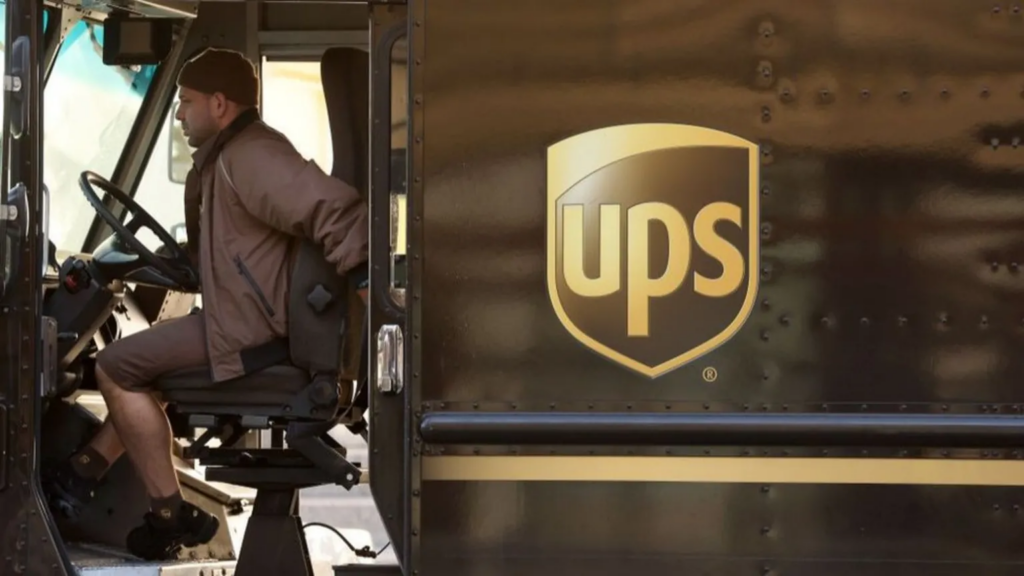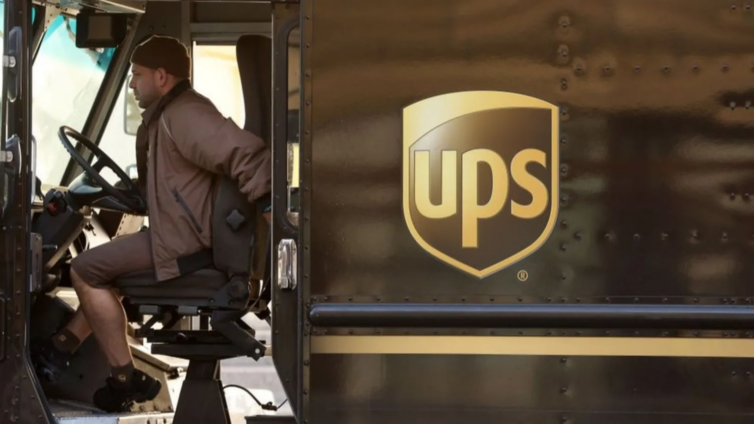Parcel delivery firm UPS has said it will cut 12,000 jobs, after it was hit by a softer economy and a labour fight that scared away some customers.
Chief executive Carol Tomé said 2023 was a "difficult and disappointing year", and the firm was investing in artificial intelligence (AI) as it pushes to become more efficient.
She has also called staff back to the office five days a week.
The job cuts are expected to reduce costs by $1bn (£790m) this year.
UPS, whose business is seen as an indicator of wider economic health, struggled last year with a fall in sales and profits, as the number of packages handled by the firm declined.
The company said that reflected economic weakness in Europe and parts of Asia, as well as disruption in the US, where a strike threatened by staff over the summer led some customers to shift their business to rivals.
UPS said it had since won back about 60% of that business and expected modest growth to start to return this year, with average daily volumes flat or up 2% in the US and flat or up 3% internationally.

But its forecast was weaker than analysts had expected, sending shares down more than 7%.
It also warned that costs associated with its new contract with the Teamsters union would continue to weigh on the company over the next six months.
As part of that deal, the average full-time driver won a pay and benefits package worth about $170,000 (£135,000) a year by the end of the five-year contract in 2028.
The 12,000 planned job cuts represent about 2.5% of the company's global workforce, which has already shrunk since the pandemic when a surge in online shopping prompted business to boom.
Executives said most of the positions would be cut from the ranks of its 85,000 management staff, as well as some contractors. Those positions will not return, even as the business mends, executives said.
"It's a change in the way we work," said chief financial officer Brian Newman.
The company is also exploring a potential sale of Coyote, a truck load brokerage business it purchased in 2015, which matches truckers to customers.
Ms Tomé said the firm sees many opportunities in the years ahead to boost productivity.
"Technology has changed so much in the past year when you think about the advent of generative AI and applications inside our business," she said. "I'm really excited about what the changes will mean."
On its busiest days, UPS sorts 50 million packages in the US and delivers more than 30 million parcels worldwide.
Ms Tomé said the firm was worried about how shipping would be affected by disruption from conflict in the Red Sea, as well as drought in the Panama Canal, which has made it hard for ships to travel typical routes.
Latest Stories
-
Blue Gold Bogoso Prestea Limited challenges government actions in court
22 minutes -
Patrick Atangana Fouda: ‘A hero of the fight against HIV leaves us’
1 hour -
Trinity Oil MD Gabriel Kumi elected Board Chairman of Chamber of Oil Marketing Companies
2 hours -
ORAL campaign key to NDC’s election victory – North America Dema Naa
2 hours -
US Supreme Court to hear TikTok challenge to potential ban
2 hours -
Amazon faces US strike threat ahead of Christmas
3 hours -
Jaguar Land Rover electric car whistleblower sacked
3 hours -
US makes third interest rate cut despite inflation risk
3 hours -
Fish processors call for intervention against illegal trawling activities
3 hours -
Ghana will take time to recover – Akorfa Edjeani
4 hours -
Boakye Agyarko urges reforms to revitalise NPP after election defeat
4 hours -
Finance Minister skips mini-budget presentation for third time
4 hours -
‘ORAL’ team to work gratis – Ablakwa
4 hours -
Affirmative Action Coalition condemns lack of gender quotas in Transition, anti-corruption teams
4 hours -
December 7 election was a battle for the ‘soul of Ghana’ against NPP – Fifi Kwetey
4 hours

